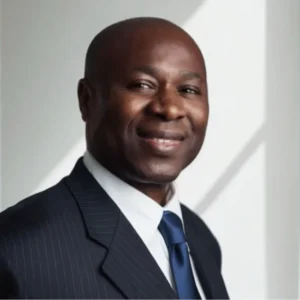The Erosion of Trust in Ghana’s Banking Sector
The fundamental compact between depositors and the financial system is deceptively simple: individuals and businesses entrust their money to a bank, expecting to access it reliably when needed. For too long, this basic social contract has underpinned economic stability and public confidence. However, in Ghana today, this foundational agreement appears to be unraveling at an alarming pace.
Everyday citizens, small business owners, and professionals are increasingly finding that accessing their own funds has transformed into an arduous, bureaucratic challenge. The process is often fraught with complex paperwork, vague excuses, and sometimes, directives from the Bank of Ghana (BOG) that seem to defy logical interpretation.
Recent discussions on social media platforms highlight a profound and pervasive sentiment that the financial system is no longer adequately serving the public. These personal accounts paint a picture that raw data often misses:
“It’s becoming extremely difficult to bank nowadays,” one frustrated Ghanaian shared. “Soon one will have to check BOG’s TikTok for new directives.”
Another user recounted the absurdity of being asked to produce receipts from the U.S. simply to withdraw their own dollar deposits. Such experiences transcend mere inconvenience; they point to a system struggling with overzealous, inconsistent application of rules, creating an environment that feels more like an obstacle course than a service.
The Central Bank’s Dilemma and Clumsy Execution
It’s important to acknowledge that this situation isn’t entirely without context. Ghana’s central bank operates under significant pressure, grappling with currency depreciation and dwindling foreign reserves. Its attempts to tighten control over capital flows are, from a macroeconomic perspective, understandable. Yet, the execution of these policies has frequently been perceived as clumsy – a response driven by panic rather than clearly articulated principles.
When new regulations are introduced with bewildering frequency, both bankers and customers are left in a perpetual state of uncertainty, guessing which directive might emerge next. This creates an impression that monetary policy has been supplanted by reactive improvisation, undermining stability and predictability.
In this challenging climate, commercial banks have found themselves in the unenviable position of reluctant gatekeepers. They are compelled to enforce the letter of new regulations, often at the expense of their spirit. Depositors are met with arbitrary conditions, such as being told to “come before 1 p.m.” for withdrawals, or directed to a “head office” because a branch is allegedly “out of cash.” This Kafkaesque routine extends beyond mere inconvenience; it sends troubling signals about underlying liquidity issues, which may be hidden in plain sight.
The Growing Trust Deficit
The larger, more critical issue at stake is not merely the scarcity of foreign exchange; it is the alarming scarcity of trust. Each overzealous compliance demand and every unexplained delay chips away at the confidence the average Ghanaian places in their bank. It implicitly communicates that the institution doesn’t trust them, leading to a reciprocal erosion of trust from the depositor’s side.
“I’ll put my dollars under a stone,” one participant quipped, half-jokingly.
Yet, such jokes are potent early warning signs of a creeping informalization of the economy. When citizens lose faith in formal banking institutions, they naturally seek alternatives – hoarding cash, converting to hard currency, or moving funds offshore. Multiply this behavior across millions of individuals, and the outcome is not just personal inconvenience but profound macroeconomic instability. Paradoxically, the more the central bank attempts to control these flows, the faster capital finds alternative, unregulated channels.
Beyond economics, there’s a critical social dimension. As one participant observed, “If you don’t know any big man, you’ll be frustrated all the time.” This highlights where policy failure converges with moral failure. When financial systems become so entangled in bureaucracy that only those with specific connections can navigate them effectively, the outcome is predictable: public perception shifts towards believing that corruption offers a more viable path than honest labor.
As one commentator in the thread starkly put it, “It’s better to steal big than work small.”
Sentiments like these don’t just corrode economies; they fundamentally undermine societies. Ghana’s banking system is at risk of transforming ordinary savers into cynics, and history repeatedly demonstrates that cynics make for poor investors and active participants in a formal economy.
The Path to Restoration: Communication and Purpose
None of these challenges are insurmountable. The path toward restoring faith and functionality begins with something deceptively simple, yet profoundly impactful: COMMUNICATION.
The Bank of Ghana, often constrained by political pressures, has a significant challenge in this regard. However, commercial banks must take the initiative to stop ambushing customers with new rules. Instead, they need to explain these directives – clearly, publicly, and proactively. The BOG, for its part, must balance its vigilance with predictability; financial discipline cannot thrive in an atmosphere of perpetual surprise and uncertainty.
Most crucially, policymakers must remember the fundamental purpose of a banking system: it is not to POLICE citizens, but to SERVE them. If this vital balance is not swiftly restored, Ghana’s economy faces a risk far greater than just losing liquidity; it risks losing its very legitimacy in the eyes of its people.
![NBOSI-01[1] NBOSI-01[1]](https://cloudypos.com/nbosi/wp-content/uploads/sites/59/elementor/thumbs/NBOSI-011-rc3u2ljhmnhjs84d8kcrtfc3b1mya82rhqxld85wl8.png)







